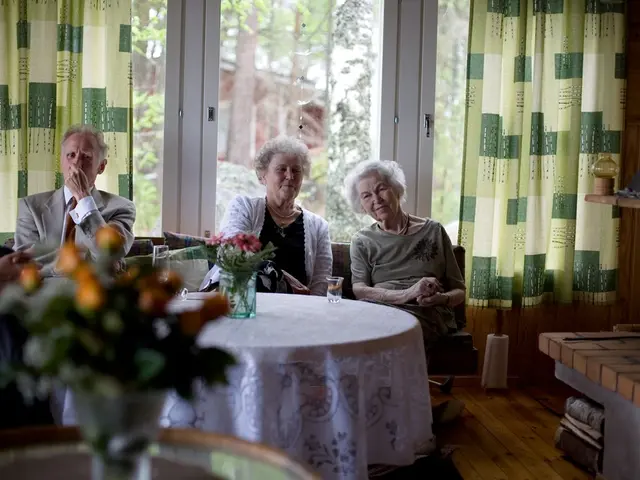Steel wage talks kick off: Employers propose 3.1% hike
Wage discussions for the northwest and east German steel sectors commenced in Düsseldorf on Monday, kicking off with an employer's proposal. The employers suggested a 15-month wage increase of 3.1%, which IG Metall deemed "completely inadequate." The union is, in turn, pushing for an 8.5% hike over 12 months.
Employers counter that, considering anticipated inflation around 3%, the IG Metall's demand is "outdated." Inflation, they assert, has left employees' wallets noticeably lighter over the last year and a half and continues to impact finances today.
Both sides traded barbs during the initial round of collective bargaining in Düsseldorf. IG Metall advocated for a 32-hour workweek with full compensation, a proposal met with stern opposition from the steel employers' association who deemed it neither feasible nor financially sound.
The East German steel industry's district leader, Dirk Schulze, defended the idea of reduced working hours, stating it would bolster recruitment efforts, especially among younger workers. Not only would it enhance work-life balance but also reduce absences due to illness and boost productivity.
Negotiating on behalf of NRW, Knut Giesler stressed the role of employers in fulfilling their social responsibilities. Shifting to direct reduction plants would decrease labor requirements, making the proposed reduction in working hours with full pay compensation a crucial job-saving and wage-securing strategy.
Approximately 76,000 workers are employed in the steel and iron industry across North Rhine-Westphalia, Bremen, and Lower Saxony. In the East German sector, approximately 8,000 individuals are employed. The North-Western steel industry scheduled subsequent negotiations on November 23, while parties for the East German sector plan to continue discussions on November 24. The peace obligation expires at the end of November.
Trade unions, spearheaded by IG Metall, echoed concerns over high inflation's impact on employees' incomes, urging a 8.5% wage hike across 12 months. Employers countered that, considering expected inflation under 3%, IG Metall's demand was "outdated." Furthermore, trade unions proposed a 32-hour workweek with full pay compensation, which employers deemed neither feasible nor financially viable.
While employers prioritize cost-cutting measures, IG Metall fights for substantial wage increases and job security. A specific 32-hour workweek with full pay compensation proposal has yet to materialize.
Sources:
Enrichment Data:
Employers' Position: - Wage Increase Demand: Employers, particularly chemical conglomerates like Thyssenkrupp, have demonstrated a firm commitment to reducing labor expenses by adopting cost-cutting measures and resisting wage agreements. They've been known to unilaterally terminate, or consider breaking off, negotiations with workers. - Proposal for a 32-hour Week: There's no concrete mention of a 32-hour workweek proposal with full pay compensation in the available sources. The focus, instead, is on cost-saving strategies and restructuring initiatives.
IG Metall's Position: - Wage Increase Demand: IG Metall, the metalworker's union, has continually advocated for substantial wage increases. As demonstrated with Volkswagen, where they initially demanded a 7.6% wage increase, surpassing Deutsche Bahn's 6.6% offer. - Proposal for a 32-hour Week: A specific 32-hour workweek proposal with full pay compensation is absent from the sources. Instead, the union's primary focus lies in securing substantial wage increases and safeguarding job security rather than championing reduced workweeks.








